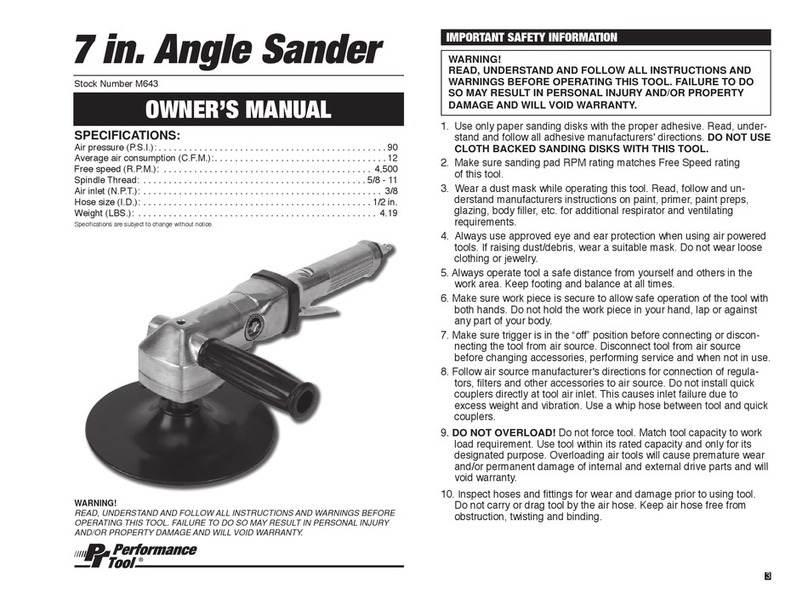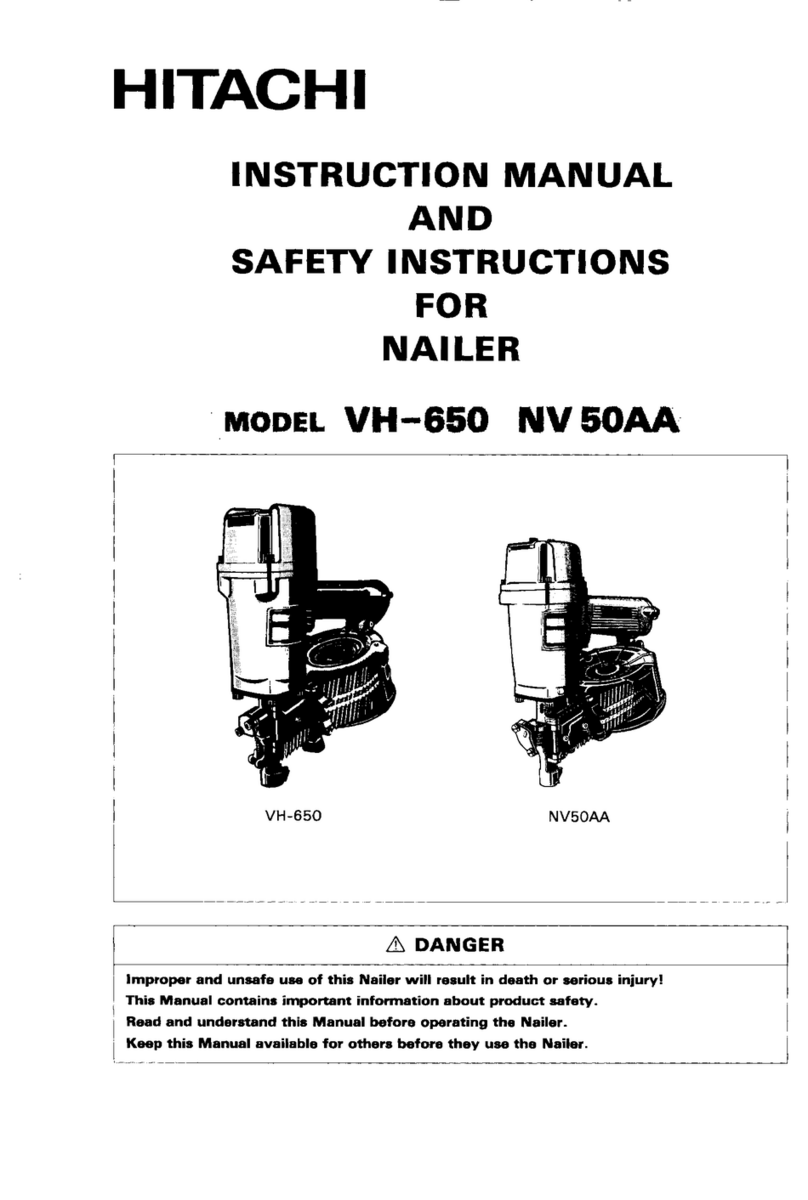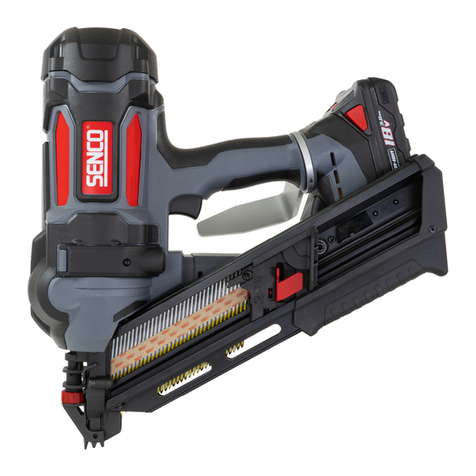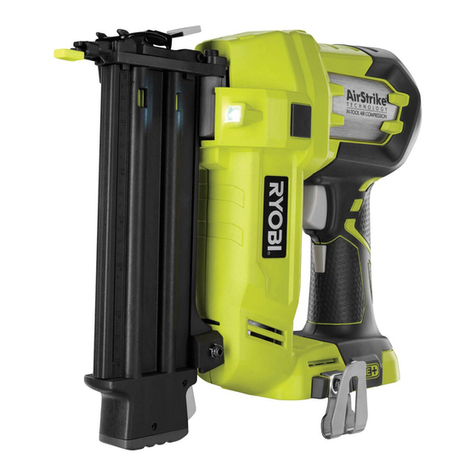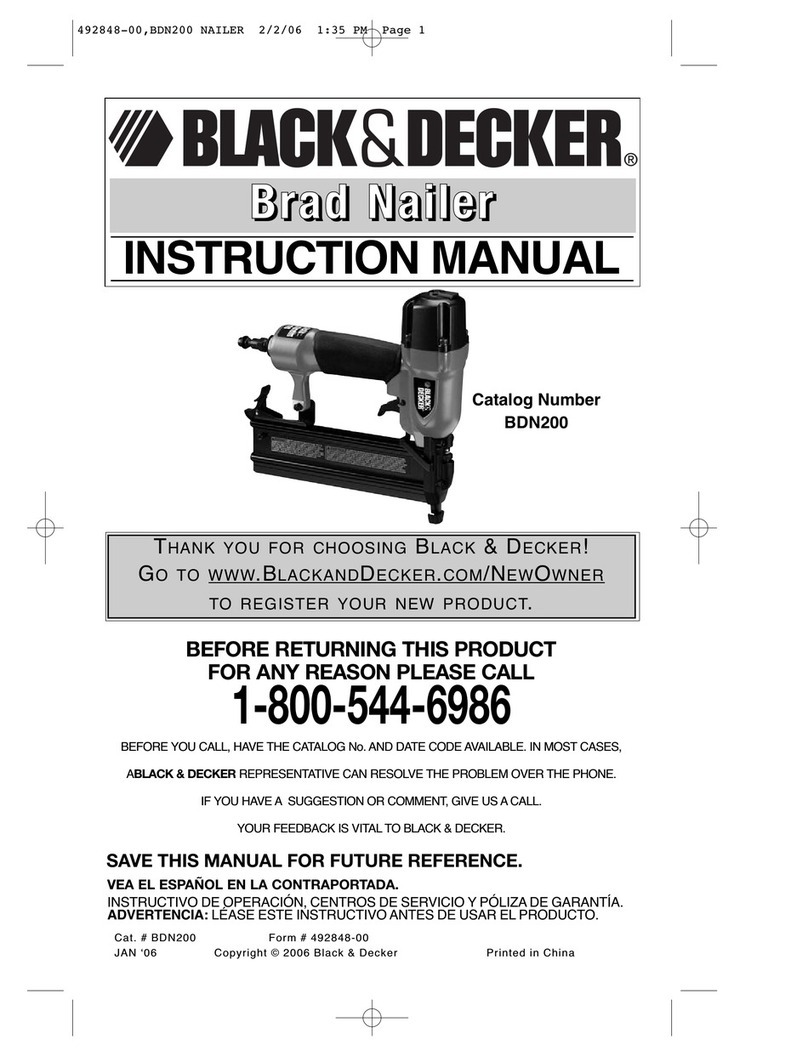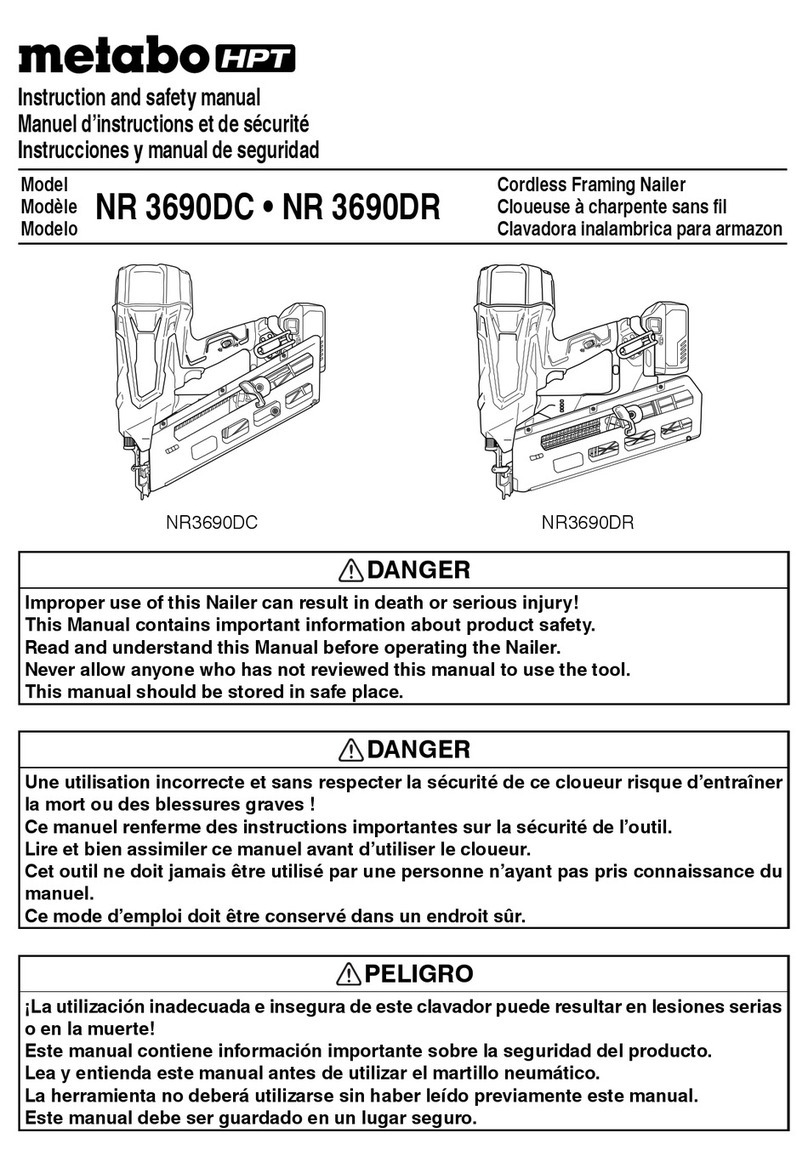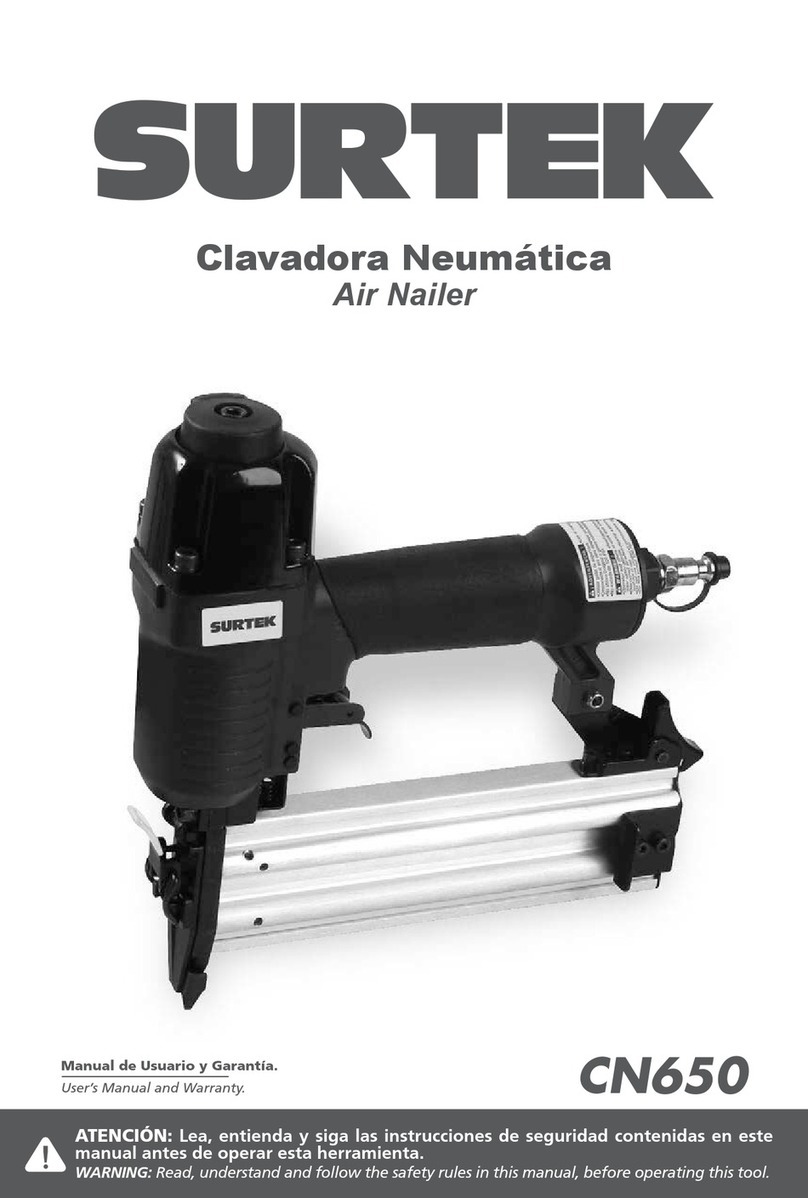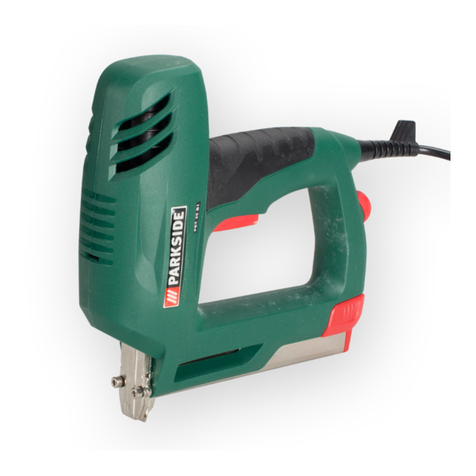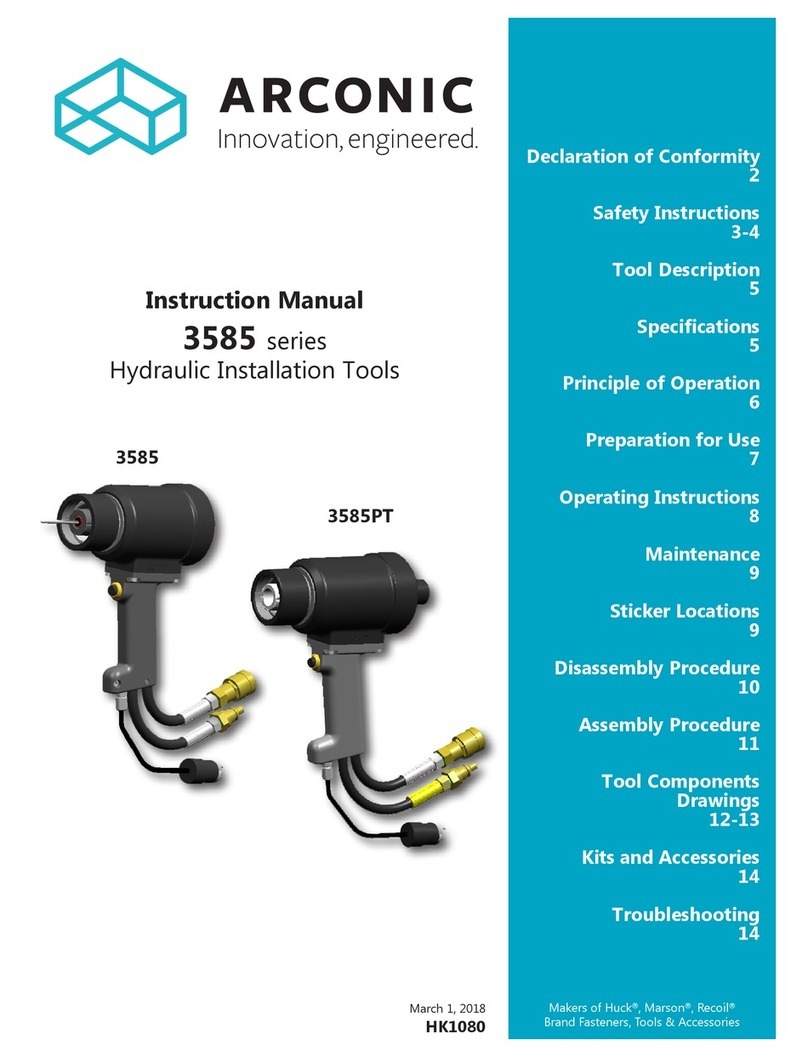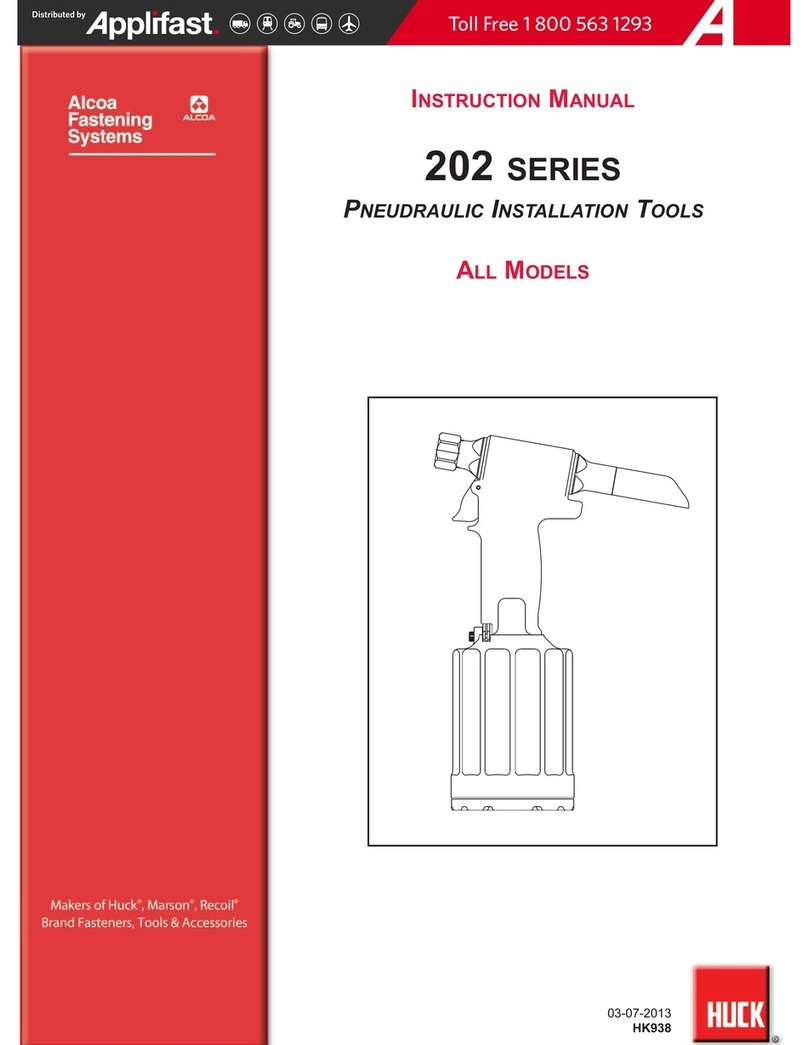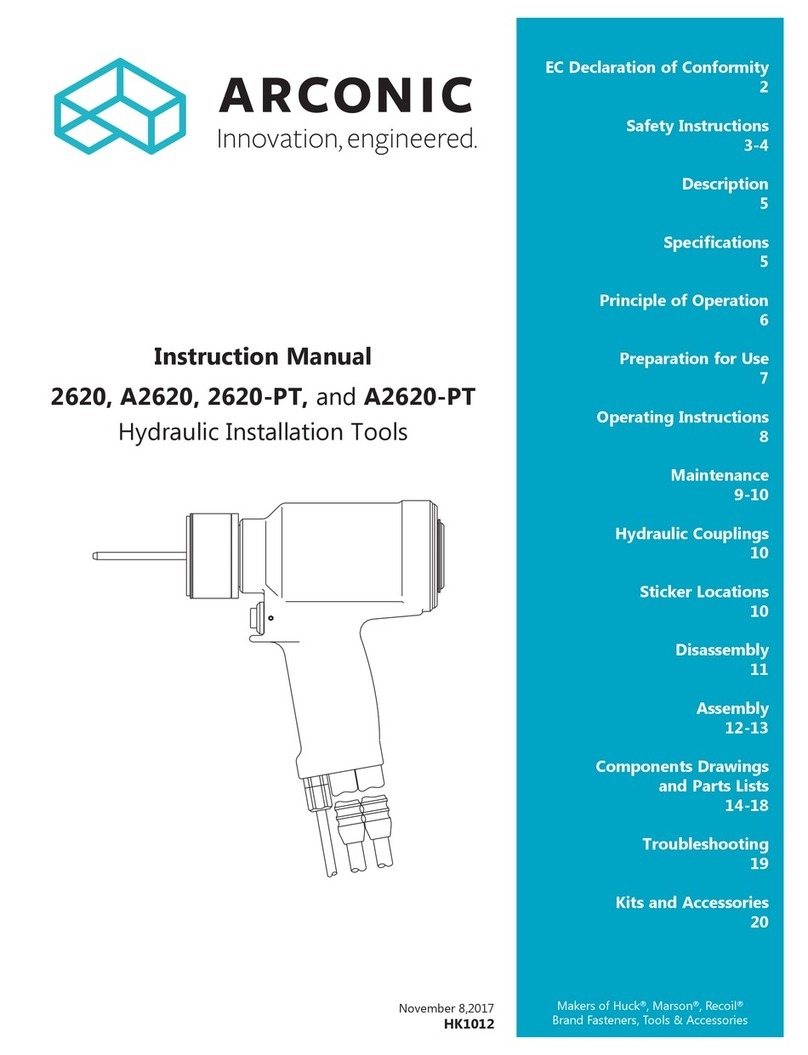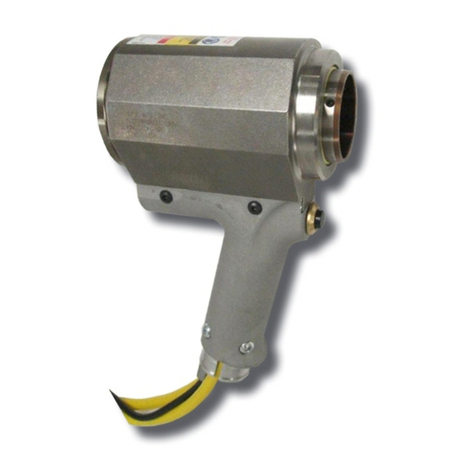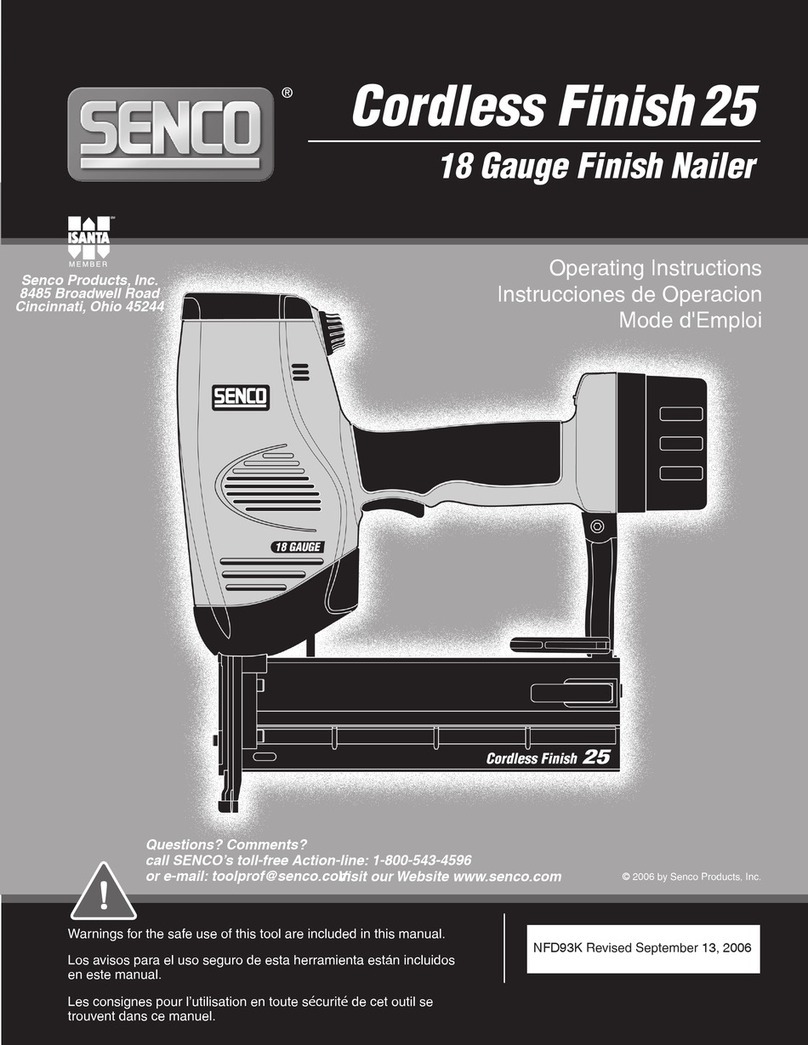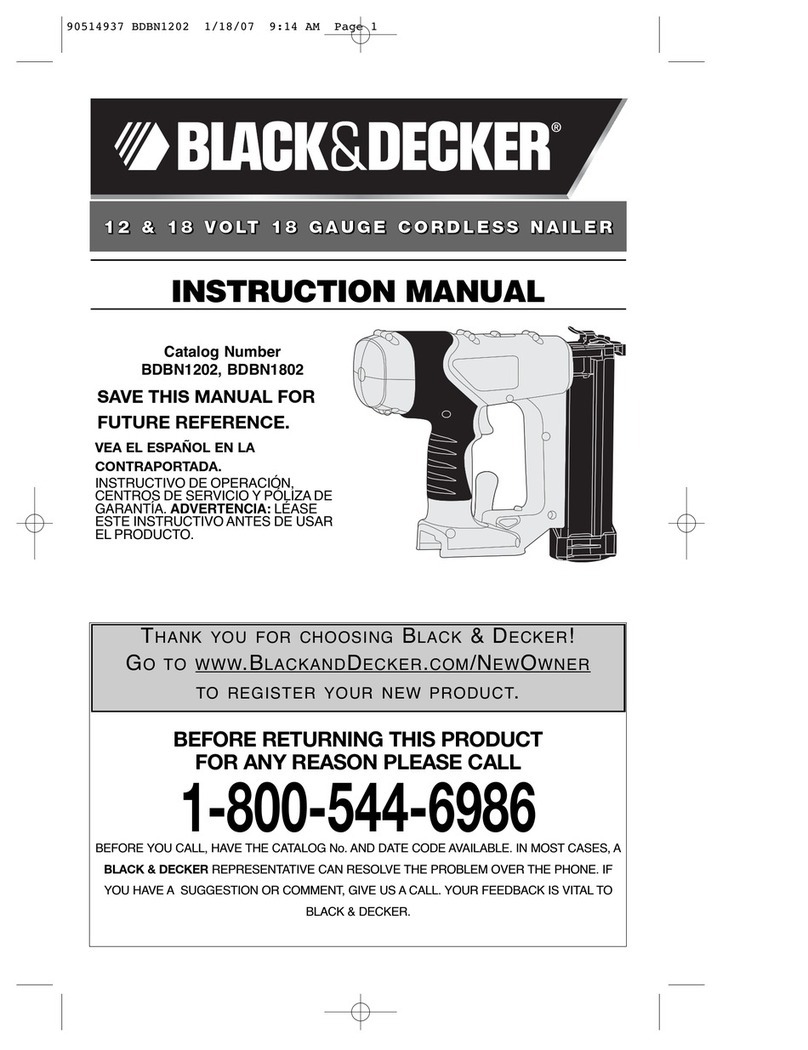
9
2600 series Hydraulic Installation Tool (HK914)
The operating efciency of your tool is directly related to
performance of the entire system, including the tool and
nose assembly, hydraulic hoses, control trigger assembly,
and the POWERIG® Hydraulic Unit. Therefore, an effective
preventive maintenance program includes scheduled
inspections of the system to detect and correct minor
troubles.
SYSTEM INSPECTION
- Inspect the tool daily. Check hoses, ttings, and
couplings for leaks and damage. Clear air-lines of dirt
and water.
- Service the tool in a clean, well-lighted area. Take
special care to prevent contamination of pneumatic and
hydraulic systems.
- Carefully handle all parts and components. Before
reassembly, examine them for damage and wear; replace
when necessary. Replace O-rings and Back-up rings
when the tool is disassembled for any reason.
- Have available all necessary hand tools (standard and
special); a half-inch brass drift and wood block; an arbor
press; and a soft-jaw vise. Unsuitable hand tools could
cause tool damage. See KiTs & Accessories.
- Follow the disassembly and assembly procedures in
this manual. If Huck recommended procedures are not
followed, the tool could be damaged.
- Disassemble and assemble tool components in a straight
line. Do NOT bend, twist, or apply undue force.
- Apply continuous steady pressure to disassemble a
component. An arbor press provides steady pressure to
press a component into or out of an assembly.
- Never force a component if it is misaligned. Reverse the
procedure to correct misalignment and start over.
FLUID MAINTENANCE
See specificATions for uid type. For uid maintenance,
refer to NAS 1638 class 9, ISO CODE 18/15, or SAE level
6. Dispose of uid in accordance with local environmental
regulations. Recycle steel, aluminum, and plastic parts in
accordance with local lawful and safe practices.
STANDARD SEALANTS, LUBRICANTS
- Apply Parker Threadmate®, Loctite® 567, or Slic-Tite®to
male pipe threads per manufacturer’s instructions (to ease
assembly and to prevent leaks).
- Smear LUBRIPLATE®130-AA or SUPER-O-LUBE®on
rings and mating parts to ease assembly and to prevent
nicking/pinching rings on rough/tight spots.
PREVENTIVE MAINTENANCE
Huck recommends that you:
- Inspect the tool and nose daily for damage and wear.
Inspect the tool before each use for leaks.
- Verify that hoses, ttings, and trigger connections are
secure and free of leaks.
- Inspect hydraulic hoses for signs of damage. Replace if
necessary.
- Inspect the tool, hoses, and POWERIG during operation
to detect abnormal heating, leaks, or vibration.
For supplementary information, see TroubleshooTing, the
DisAssembly and Assembly procedures, and the Assembly
DrAwing in this manual.
POWERIG MAINTENANCE
Maintenance instructions and repair procedures are in the
appropriate POWERIG Instruction Manual.
TOOL MAINTENANCE
Whenever disassembled, and at regular intervals,
depending on use, replace all O-rings and Back-up rings.
Tool-specic Spare Parts Service Kits should be kept
on hand. Inspect cylinder bore, piston, piston rod, and
unloading valve for scored surfaces, excessive wear, and
damage; replace as necessary.
NOSE ASSEMBLY MAINTENANCE
Clean nose assemblies in mineral spirits to clear jaws and
rinse metal chips and dirt. For a more thorough cleaning,
disassemble the nose assembly. Use a pointed “pick” to
remove embedded particles from the pull grooves of the
jaws.
Clean all parts of any assembly with UNITIZEDTM Jaws in
mineral spirits or isopropyl alcohol only; do not let jaws
come in contact with other solvents. Do not let jaws soak;
dry them immediately after cleaning. Huck recommends
drying other parts before re-assembling.
For additional information, see the appropriate Nose
Assembly Data Sheet.
SPARE PARTS SERVICE KITS
Spare Parts Service Kits contain perishable parts (O-rings,
Back-up rings, and other standard items) for your tool
(see KiTs & Accessories). For convenience, and as experience
indicates, keep extra kits and tool parts on hand. As an
alternative, you can obtain O-rings and Back-up rings from
any regular retailer of these items.
Maintenance
CAUTIONS:
Consult the Material Safety Data Sheet
(MSDS) before servicing tool.
Keep foreign matter out of the hydraulic
system. Keep separated parts away from dirty
work surfaces.
Dirt and debris in hydraulic uid causes valve
failures in tool and Powerig®.
Check the Assembly Drawings in this manual
for the proper direction of the ats on the
dump valve.
Always replace all seals, wipers, O-rings, and
Back-up rings when the tool is disassembled
for any reason.
Do NOT use Teon®tape on pipe threads.
Tape can shred and break free into uid lines,
resulting in malfunctions.
Damaged jaw teeth, or debris packed between
teeth, will result in fastener not being
installed or being improperly installed.
